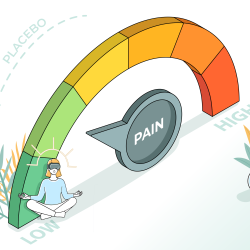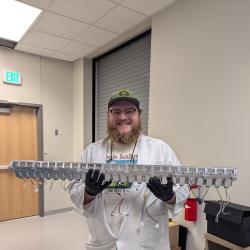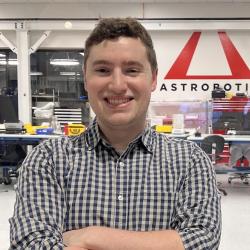UMD Named Flagship Academic Partner for Quantum World Congress 2025
Quantum World Congress (QWC) named the University of Maryland as the official Flagship Academic Partner for its 2025 conference Sept. 16-18, 2025 in Tysons, Va. The announcement cements a multi-year collaboration that has helped place UMD at the center of a global conversation on quantum science and innovation, and at the heart of the rapidly growing Greater Washington quantum ecosystem.
UMD has worked closely with QWC organizers since its launch in 2022, helping to grow the conference into the premier global event focused on the future of quantum science and innovation. From its position inside the Capital Beltway just miles from Washington, D.C., UMD has been a leader in establishing the Greater Washington region as the “Capital of Quantum”—where cutting-edge science, real-world application and global collaboration converge.
“We are not building quantum for the few—we’re building it for the world,” said UMD President Darryll J. Pines, who will deliver a plenary address at the conference about people, investments, partnerships and research in the Capital of Quantum. “At the University of Maryland, our mission is to advance the science and the systems—but also the talent and trust that quantum demands to deliver an impact on real people. Our region has become the Capital of Quantum because we are fearless in our research, relentless in our partnerships, and committed to making this technology accessible and responsible."
With two decades of deep federal and industry partnerships, a network of specialized research centers, and a growing pipeline of startups and applied technologies, UMD is foundational to the next era of scientific advancement while continuing to lead the way. It has further strengthened a highly collaborative ecosystem through the Mid-Atlantic Quantum Alliance, whose membership—comprising industry, government and academic organizations with substantial quantum assets in the region—has tripled over the past six years to more than 50 members.
In the last year, developments in UMD’s quantum ecosystem include:
- The launch of the Capital of Quantum Initiative, a landmark public-private partnership between UMD and the state of Maryland to catalyze $1 billion in investments and position the state and greater D.C. region as a global leader in quantum information science and technology.
- The creation of the Capital Quantum Benchmarking Hub, a cooperative effort between the Defense Advanced Research Projects Agency (DARPA) and the state of Maryland that will be located in the university’s Discovery District, with UMD’s Applied Research Laboratory for Intelligence and Security (ARLIS) as a major partner.
- Plans for new 100,000-square-foot corporate headquarters for IonQ, a leading quantum computing and networking firm founded on UMD research, in the university’s Discovery District. The National Quantum Laboratory at Maryland, or Q-Lab, an IonQ-UMD partnership that provides access to state-of-the-art quantum computers to students, faculty, staff and partners, will also expand.
- A newly established position of associate vice president for quantum research and education, held by Gretchen Campbell, an internationally recognized researcher and national leader in advancing the field of quantum science.
- The founding of the Maryland Institute for Quantum Applications at UMD’s ARLIS, dedicated to investigating how quantum technologies can lead to new strategic tools and systems designed to enhance national defense capabilities.
Throughout the three days of QWC, UMD faculty and staff will deliver remarks, present demonstrations and exhibits, and lead panels and discussions on emerging topics such as quantum startups, supply chains, the role of the arts in quantum innovation, and more.
“UMD isn’t just contributing to the quantum ecosystem—they’re helping to architect it,” said George Thomas, president and CEO of Connected DMV, the nonprofit organization that operates Quantum World Congress. “No institution has done more to align research, workforce and policy around a bold, inclusive vision for quantum. That’s why they are our Flagship Academic Partner for the future we’re building together.”







